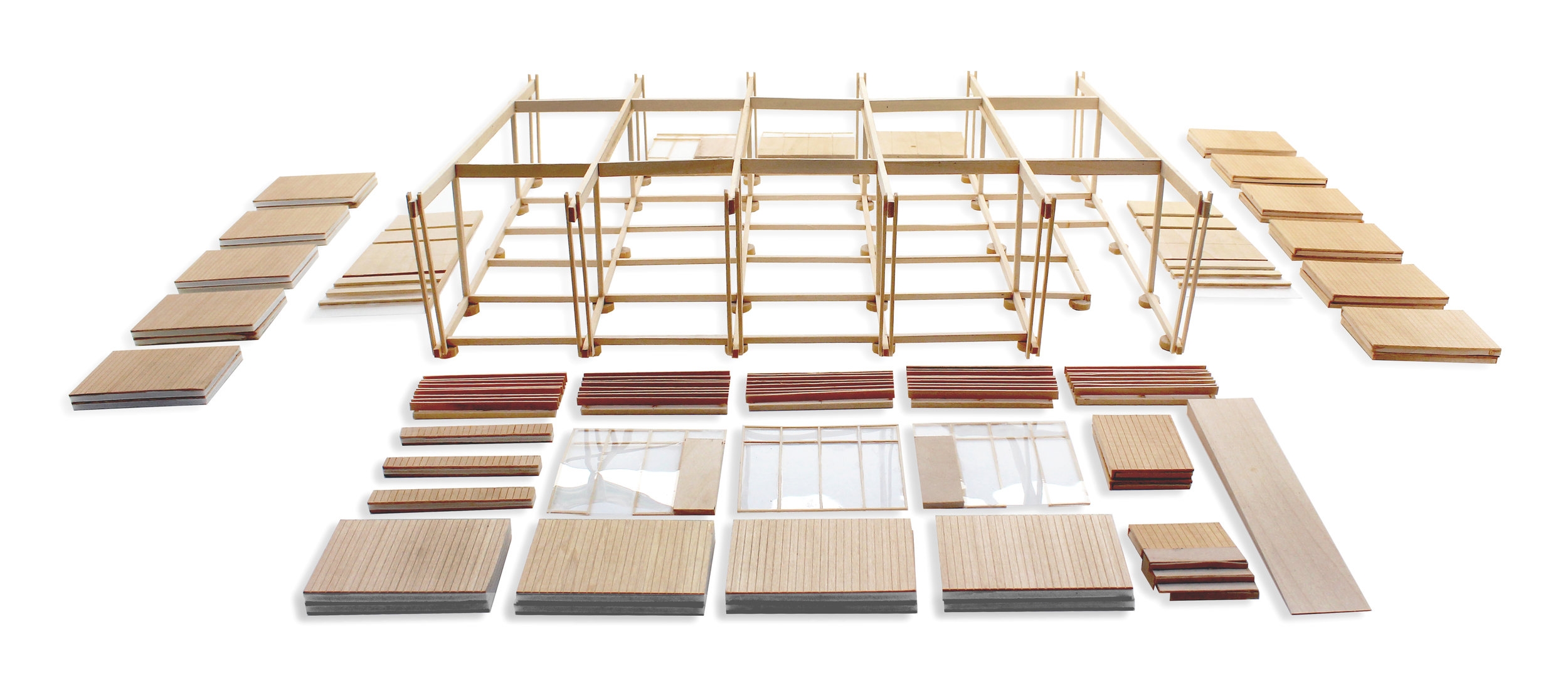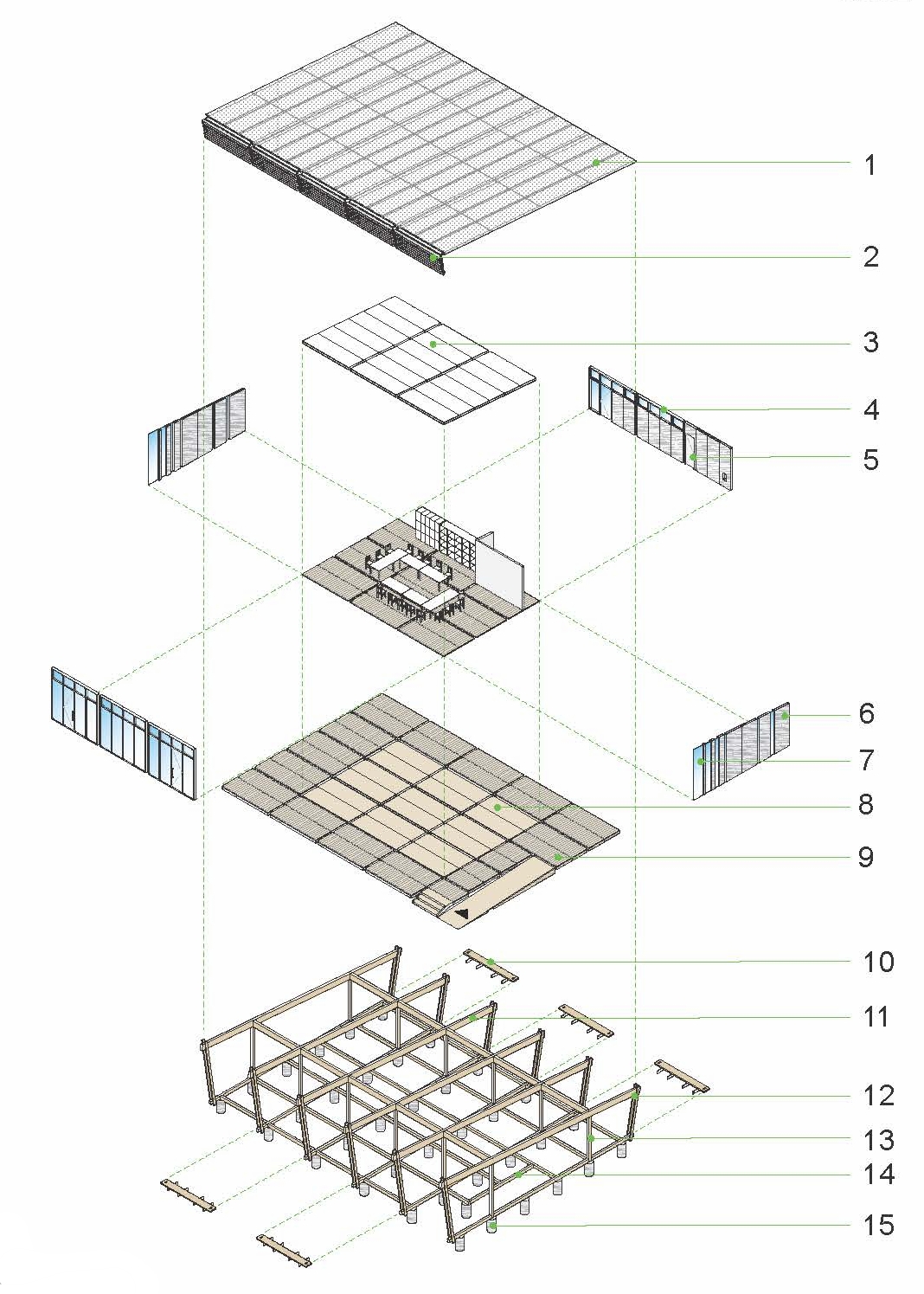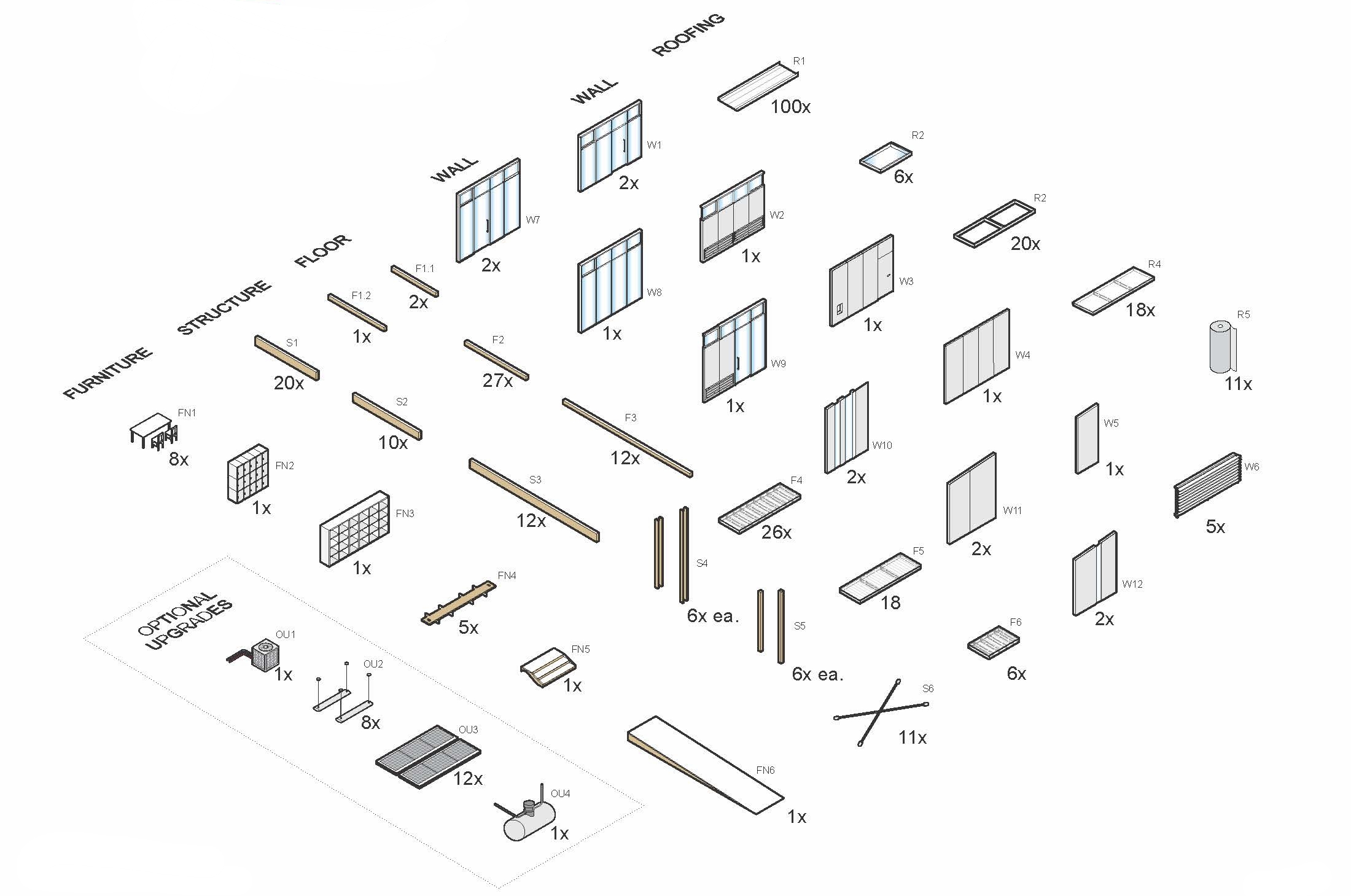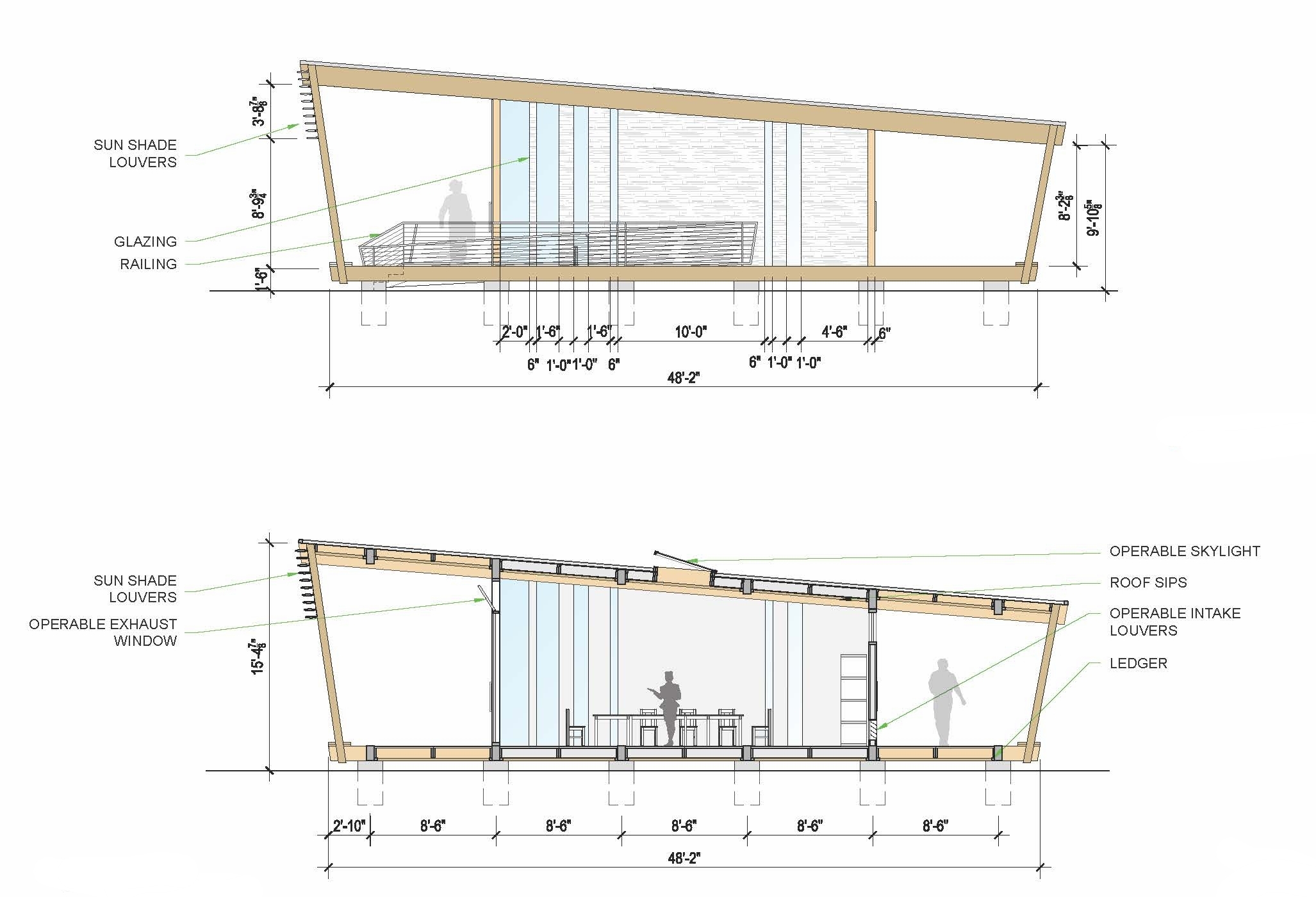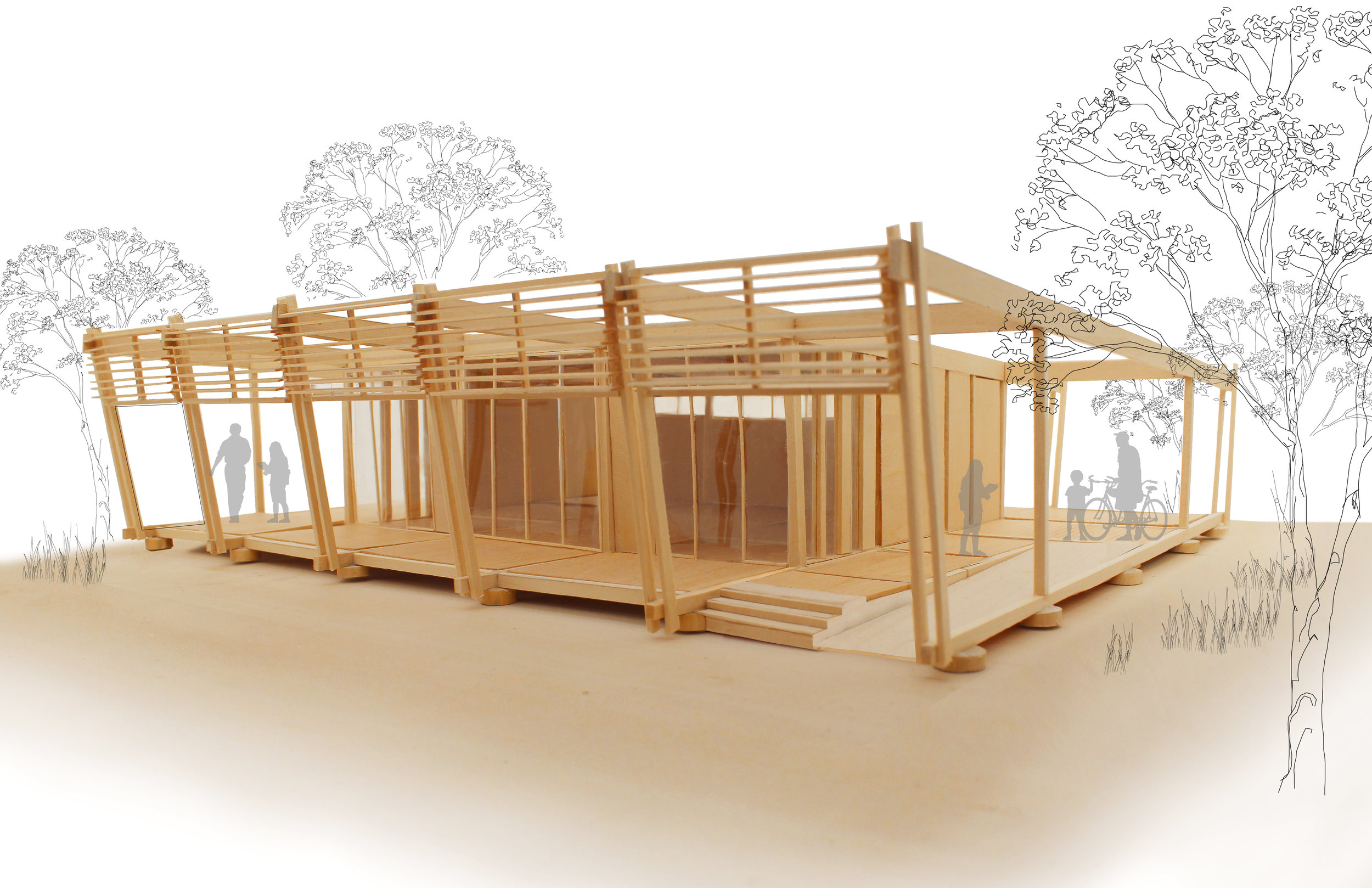Kit of Parts: A Portable Classroom Concept
Kit of Parts: A Potable Classroom Concept
In collaboration with Arup and VS America
LOCATION: Assembly on site
SIZE: 2,500 SQ FT
DESIGN: 2012
PROGRAM: Mobile educational environment assembled from a kit of parts
What comes in the package?
Today’s mobile classrooms tend to have a negative connotation. They were originally designed as an economical solution to provide schools a temporary space for disaster relief, or during construction and expansion. Identifying the flaws of existing mobile classrooms is crucial to its re-conceptualization, and include but are not limited to:
- INSTALLED FAR LONGER THEIR LIFESPAN. THE TERM ‘TEMPORARY’ BECOMES OBSOLETE.
- BUILT WITH CHEAP, NON-RECYCLABLE, NONDURABLE MATERIALS
- ISOLATED FROM OTHER CLASSROOMS, STUDENTS, AND ACTIVITIES
- AN UNHEALTHY ENVIRONMENT FOR WORKING, TEACHING, LEARNING, EXPANDING
our process
Plasticity allows for a dynamic learning environment, one where students become more engaged with their teachers, peers, and resources. Plasticity may be achieved by:
- Integrating a flexible furniture and storage package
- Supporting existing technologies and accommodating advancing technologies
- Providing user control of light, ventilation and acoustics
“You can’t expect children to learn 21st-century skills in schools built for the 1950s. We need schools design for 21stcentury success.” Chad P. Wick CEO KnowledgeWorks [The Third Teacher]. By fully embracing the digital age, contemporary schools can change the way we teach and learn.
- Broader range of exchange and connectivity between students and teachers
- Wide variety of teaching and learning methods allows for more productive school-days
- Elimination of the "one-wall" and "closed container" classroom typologies
Teaching and learning methods are intrinsically linked to the environments in which they are produced. To improve upon the common flaws found in today’s deteriorating and expanding classrooms, we must consider the most sustainable methods to:
- Improve air quality
- Creative flexible + unscrambled spaces
- Control acoustics
- Provide access to light, environment and context
Our proposal takes on the temporary classroom as a Kit of Parts. We believe this is an appropriate method to deal with issues of cost, sustainability, flexibility, and teaching methodologies. The Kit of Parts aims for high quality, cost effictive design by allowing for:

